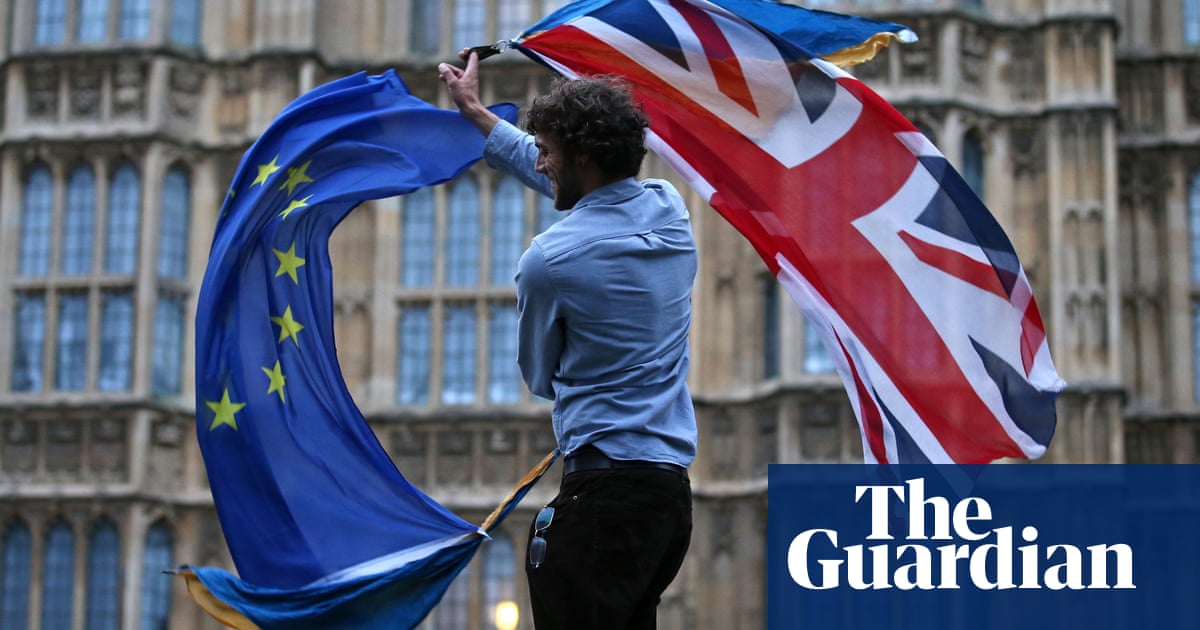
Plans for the UK to re-establish formal foreign and security policy ties with the European Union, frozen during trade agreement negotiations, may never be revived as UK foreign policy focuses on bilateral ties in Europe and developing of new alliances in the Indian Ocean. Pacific and the Middle East.
The freeze marks a little-discussed reversal of Theresa May-era thinking, when the political statement at the time of Britain’s withdrawal spoke of negotiating deep UK-EU cooperation.
May said at the Munich security conference in 2018: “The security of Europe is our security, and the UK is unconditionally committed to upholding it. The challenge for all of us today is to find the way to work together, through a deep and special partnership between the UK and the EU, to maintain the cooperation we have built and move forward in addressing the changing threats we face together. “
The EU even published proposals on how this collaboration could work in detail, but the UK has not taken up the ideas.
Britain’s May-era shift has not been formally announced on either side and its implications have been little discussed.
For the EU, which is trying to integrate its own foreign policy, there must be fear that Britain could undermine the standards of its foreign policy, just as it fears the UK deviating from trading standards. But diplomats in Britain believe that post-Brexit the UK has already demonstrated independent judgment and swiftness in comparison with the EU, where cumbersome decision-making requires all 27 EU foreign ministers to agree. The drawbacks of avoiding EU foreign policy are imperceptible to Tory Eurosceptics.
The UK has thus worked in strict ad hoc with the EU over the past year, often following its own path on matters such as sanctions. For example, in the case of Belarus, the UK (with Canada) has issued sanctions against the Minsk regime before the EU (and the US) agreed on their packages. The EU and the US appeared to have coordinated their respective measures, but the EU measures were subsequently blocked and delayed as Cyprus threatened to veto.
In contrast, the response to the poisoning of Russian dissident Alexei Navalny led to tight coordination between the EU and the UK, echoing the 2018 Skripal case blueprint.
In the case of Turkey’s drilling for gas in the eastern Mediterranean, the EU has imposed some sanctions and more may be filed in March, while Britain has kept it low and doesn’t want to offend either side. As France and Turkey have exchanged insults and Germany brokered, the UK was free to distance itself outside the EU, perhaps remembering the trade deal it is seeking with Turkey.
In Libya, where the UK played a major role in the 2011 revolution, it recently stood on the sidelines watching EU reports of Turkish breaches of the UN arms embargo, and exiting the EU to police migrants who Mediterranean crossing to Spain and Italy. On some issues, the past year has shown advantage in diplomatic discretion.
The main European forum in which the UK operates remains E3 – Germany, France and the UK. Here, in public, the European superpowers have maintained at least close to the nuclear deal with Iran, resisted US pressure to declare the deal broken, and further put Iranian nuclear non-compliance in the dispute settlement mechanism. , a means by which the deal could be declared dead.
The E3 has also increasingly coordinated on Iranian human rights abuses, and at the political director level they have discussed broader issues, including Russia. But as far as Ukraine is concerned, the UK has only offered a defense and political partnership with Kiev.

Overall, the EU’s plans for institutionalized cooperation seem dead, or at least dormant. Rosa Balfour, director of Carnegie Europe, writes in a pamphlet from the center for foreign policy: “The EU must for the time being abandon the hope that the UK will participate in an institutionalized settlement. The British government’s foreign policy is ideologically driven; EU action is highly process-driven. The gap between the two is one of the causes of Brexit. “
British diplomats look at the foreign policy agenda of Josep Borrell, the EU’s representative for foreign affairs and security policy, and shy away. His call for more votes in foreign policy through “constructive abstinence”, and for the EU to use the language of power, is not attractive to the UK. Likewise, the contrast between Emmanuel Macron’s call for a more united Europe and one-sided French foreign policy-making reveals to British eyes the appearance of an integrated foreign policy.
In reality, too often EU foreign policy has looked like the coalition of the unwilling. But some policymakers say that the debate over EU and UK foreign policy will be revived, if only because of three deep opposing forces.
Everyday reality can lead the UK to realize that the impact of its foreign policy is greater when it cooperates with the EU. The Biden administration would also prefer the UK not to work as a freelancer, if doing so weakens the EU. Finally, the EU will slowly integrate its defense arm and has already mapped out ways for third parties, such as the UK, to participate.
Ian Bond of the Center for European Reform sees three ways in which the UK and the EU could formally cooperate: on the exchange and protection of classified information, the participation of British personnel in defense missions and operations, and the UK’s participation in defense industrial cooperation through the European Defense Agency.
But perhaps the dust from the fraught trade talks and a helping hand from Biden is needed to get these discussions going.